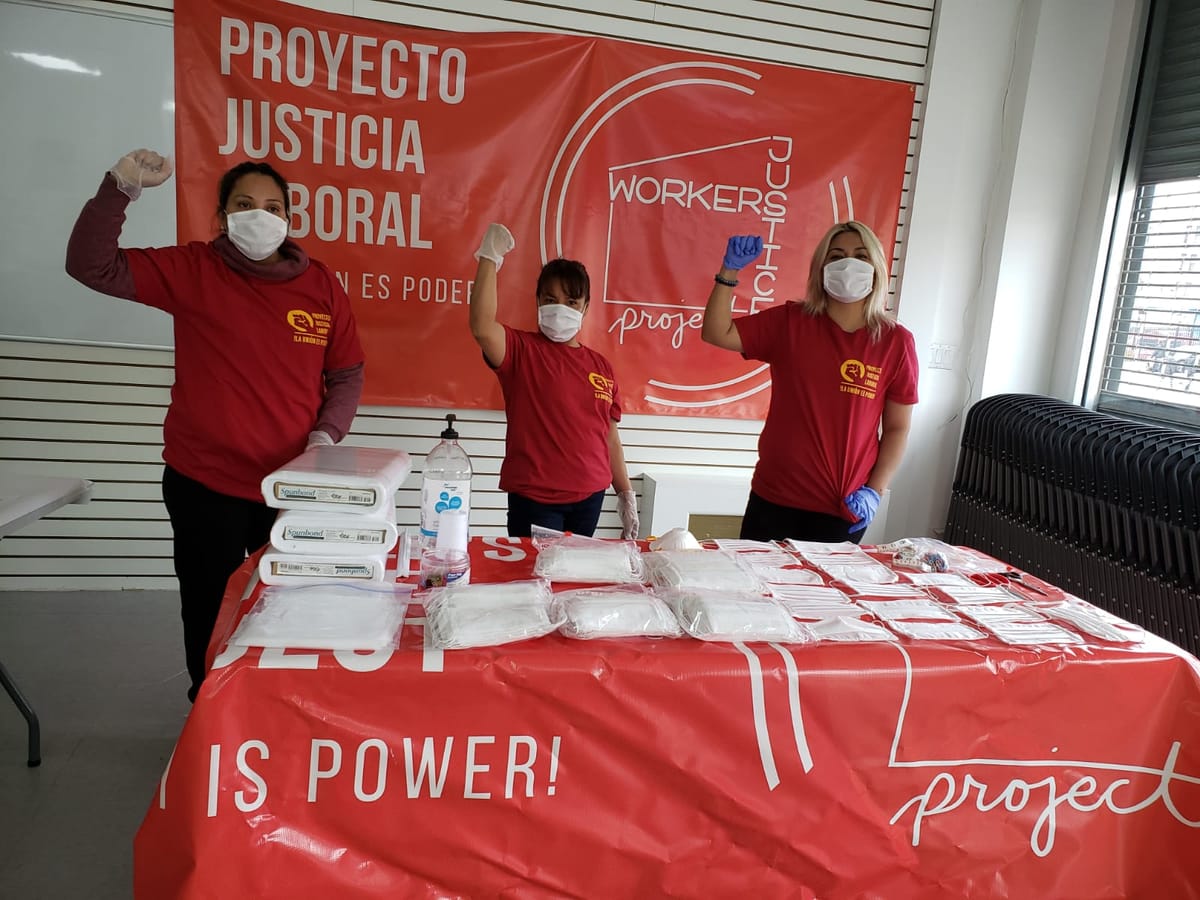Immigrant Workers and the Nonprofits That Serve Them Are in Overdrive


The Day Laborer Workforce Initiative held a press conference on Tuesday afternoon calling for city, state, and federal officials to grant relief and protection for immigrant workers and the nonprofits that serve them across the city.
“Before the pandemic, we knew that immigrant workers were extremely vulnerable. Now, as the pandemic forces our government to see the essential nature of their labor, words are not enough,” council member Carlos Menchaca said ahead of the event.
“We need action to prove that we care about these workers and their families. That is why I am joining the Day Labor Workforce Initiative in calling for an expansion and guaranteed economic relief and transition plan for day laborers. We must not let this crisis exacerbate the inequalities we know are there.”
The coalition is made up of organizations that operate day labor centers in all five boroughs of the city, and includes Catholic Charities of the Archdiocese of New York, FPWA (formerly the Federation of Protestant Welfare Agencies), La Colmena in Staten Island, New Immigrant Community Empowerment (NICE) in Queens, Northern Manhattan Coalition for Immigrant Rights (NMCIR), and the Worker’s Justice Project (WJP) in Brooklyn.
Together with council members Carlos Menchaca of Brooklyn, Carlina Rivera of Manhattan, and Deborah Rose from Staten Island the coalition is demanding that the city and state give direct economic relief to immigrant workers who can’t access federal, state and other local relief efforts because they are undocumented.
The city received a $20 million grant from the Open Societies Foundations earlier this month to be used in the form of direct aid to immigrant and undocumented families. However, it won’t be enough to help everyone; it’s estimated the fund will be able to help up to 20,000 undocumented individuals and their families, but in Brooklyn alone, there are 127,000 undocumented immigrants according to the Mayor’s Office of Immigrant Affairs.
The Day Laborer Workforce Initiative is also demanding that the city protect day laborers and other workers by ensuring they receive personal protective equipment (PPE), hazard pay, and protection from wage theft and other forms of employer abuse.
Lastly, they want to see a comprehensive recovery plan from officials that includes funding for nonprofit organizations that support day laborers, which have been working overtime in the wake of the coronavirus pandemic.
“As soon as this crisis hit, as an organization that works directly with the immigrant worker, the day laborers, we couldn’t close our doors,” said Yesenia Mata, executive director of La Colmena, an immigrant rights organization in Staten Island. Mata said La Colmena is currently working as a food distribution site, delivering food directly to victims of COVID-19, providing legal aid, as well as face masks and employment opportunities for immigrants.
The Worker’s Justice Project in Brooklyn is similarly in overdrive supporting the mostly undocumented population they serve, as we reported last week.
“We need a FEMA-style recovery response,” said Manuel Castro, the executive director of New Immigrant Community Empowerment, an immigrant rights organization located in Jackson Heights, Queens. “We are disaster recovery and relief centers, and we must be recognized as that.”
Braulio Rosaliano, a Sunset Park resident, is working two jobs- construction during day and delivery in the evenings. “I have to go out to work, as do many of my fellow workers,” Rosaliano said during the press conference. “Why? Because we have to. It’s easy to say, ‘stay at home,’ and we would if we could. But who’s going to pay our rent? Who’s going to take care of us? Where are we going to get money for food? We need to [get money for food]. I have four kids. I need to take care of them, [and] help them succeed.”
“If you are constantly excluded, the message you get is that you don’t matter,” said Alba Villa, executive director of the Northern Manhattan Coalition for Immigrant Rights. Villa said that adds trauma to a community that’s on the front lines of the pandemic. “That’s why our organizations are so critical- because we remind them that they are important,” she said.




